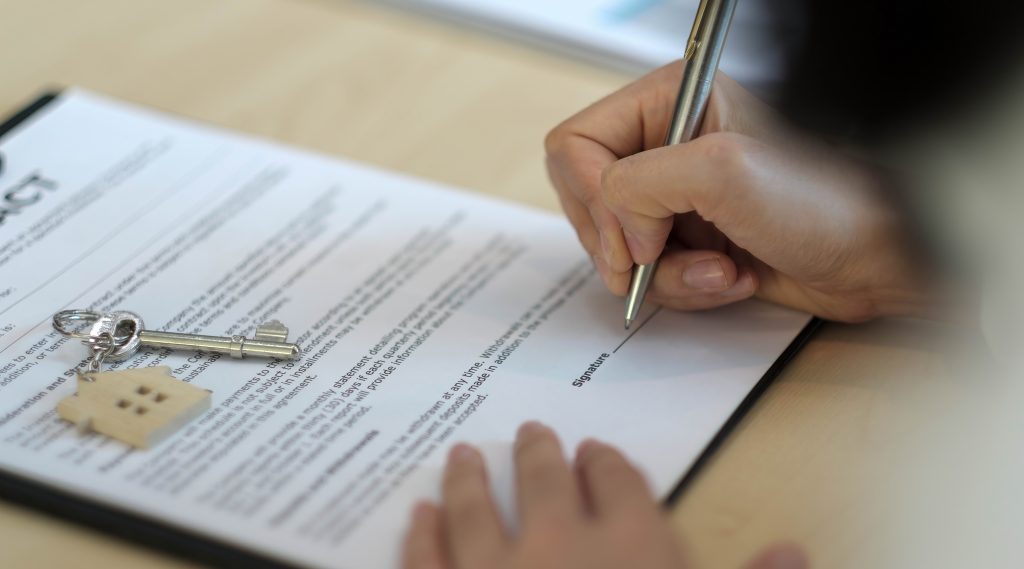Commercial Lease Agreements are a common occurrence in the world of renting and property management. Whether you’re a landlord or a tenant, understanding the ins and outs is essential to protect your rights and interests. In this blog post, we’ll walk you through the essential elements, the rights and responsibilities of both landlords and tenants and additional considerations and legal protections you should be aware of.
Understanding Commercial Lease Agreements
First things first, let’s define it. It is a legally binding contract between a landlord and a tenant that outlines the terms and conditions of renting a property. This includes the length of the lease, the rent amount, security deposit, pet policies, and any other relevant details.
One of the most important things to note is that it legally binds both parties to the terms and conditions outlined in the agreement. This means that if either party violates the terms of the agreement, they could face legal consequences.
Essential Elements
Now that we know what a Commercial Lease Agreements is, let’s dive into the essential elements that should be included.
- Names of all tenants: This includes anyone who will be living in the property, not just the primary tenant.
- Description of the property: This should include the address, unit number, and any relevant details about the property.
- Length of the lease: This outlines the start and end date of the lease and any renewal or termination options.
- Rent amount and due date: This outlines the amount of rent, when it is due, and any late fees or penalties.
- Security deposit: This outlines the amount of the security deposit and any conditions for its return.
- Utilities and other expenses: This outlines who is responsible for paying utilities and other expenses, such as internet or cable.
- Pet policies: This outlines any restrictions or fees related to pets.
- Rules and restrictions: This outlines any rules or restrictions related to the property, such as parking or noise restrictions.
It’s essential to review these elements carefully and ensure that you understand the terms and conditions outlined in the agreement before signing. If you have any questions or concerns, don’t hesitate to ask your landlord or property manager for clarification.
Rights and Responsibilities of Landlords and Tenants
Both landlords and tenants have rights and responsibilities. Let’s take a closer look at each:
- Landlord responsibilities: Landlords are responsible for maintaining the property and ensuring that it is safe and habitable for tenants. This includes making necessary repairs and addressing any health and safety concerns. Landlords are also responsible for providing tenants with notice before entering the property.
- Tenant responsibilities: Tenants are responsible for paying rent on time, keeping the property clean and in good condition, and adhering to any rules or restrictions outlined in the Commercial Lease Agreements. Tenants are also responsible for reporting any necessary repairs or safety concerns to the landlord in a timely manner.
It’s important to note that both parties have the right to take legal action if the other party violates the terms. For example, if a tenant fails to pay rent or damages the property, the landlord may have the right to evict them. On the other hand, if a landlord fails to make necessary repairs or violates a tenant’s privacy, the tenant may have the right to terminate it and seek legal action.
If you want to know about the right to extend the leases then click the link https://www.gordonandthompson.com/the-right-to-extend-the-lease/
Lease Termination and Renewal
Lease termination and renewal are two important considerations to keep in mind. Here’s what you need to know:
- Lease termination: If you need to terminate your Commercial Lease Agreements before the end of the lease term, you’ll need to review the terms of your agreement for any early termination clauses. These clauses usually outline the conditions under which a tenant can terminate the lease early, such as job loss or relocation. If there is no early termination clause, you may be responsible for paying rent until the end of the lease term.
- Lease renewal: If you want to renew it at the end of the lease term, you’ll need to review the terms of your agreement for any renewal options. These options usually outline the conditions under which a tenant can renew the lease, such as giving proper notice and adhering to the terms of the original agreement.
It’s important to review these options carefully and ensure that you understand the terms and conditions outlined in the agreement before signing. If you have any questions or concerns, don’t hesitate to ask your landlord or property manager for clarification.
Additional Considerations and Legal Protections
Finally, there are additional considerations and legal protections that you should be aware:
- Fair Housing Act: The Fair Housing Act prohibits discrimination in housing based on race, color, national origin, religion, sex, familial status, or disability.
- Security deposit laws: Many states have laws outlining the conditions under which a landlord can withhold a security deposit.
- Tenant rights: Tenants have the right to a safe and habitable living environment, as well as the right to privacy and protection from retaliation.
It’s essential to review these considerations and protections carefully and ensure that you understand your rights and responsibilities as a tenant or landlord. If you have any questions or concerns, don’t hesitate to consult with a legal professional. Schedule a consultation with us to discuss your case in detail. We are based in Plumstead, Gillingham, Maidstone and Coventry.
Related Posts
- 60
- 49
IntroductionA Tenancy Deposit Scheme is a government-backed initiative that ensures tenants' deposits are protected throughout their tenancy. The scheme provides a way for tenants to ensure they will get their deposit back at the end of their tenancy, provided they have met the terms of their rental agreement. The scheme…
- 34
Introduction to residential conveyancing Residential conveyancing is a crucial process when it comes to buying or selling a property in the UK. It involves various legal and financial steps that ensure a smooth transfer of ownership from the seller to the buyer. In this article, we will provide a comprehensive…
- 30
Buying or selling a property can be an exciting yet challenging endeavor. It involves numerous legal and financial intricacies that require careful navigation to ensure a smooth and successful transaction. In the United Kingdom, the process of transferring property ownership is known as Simplified Conveyancing. It is the legal process…









